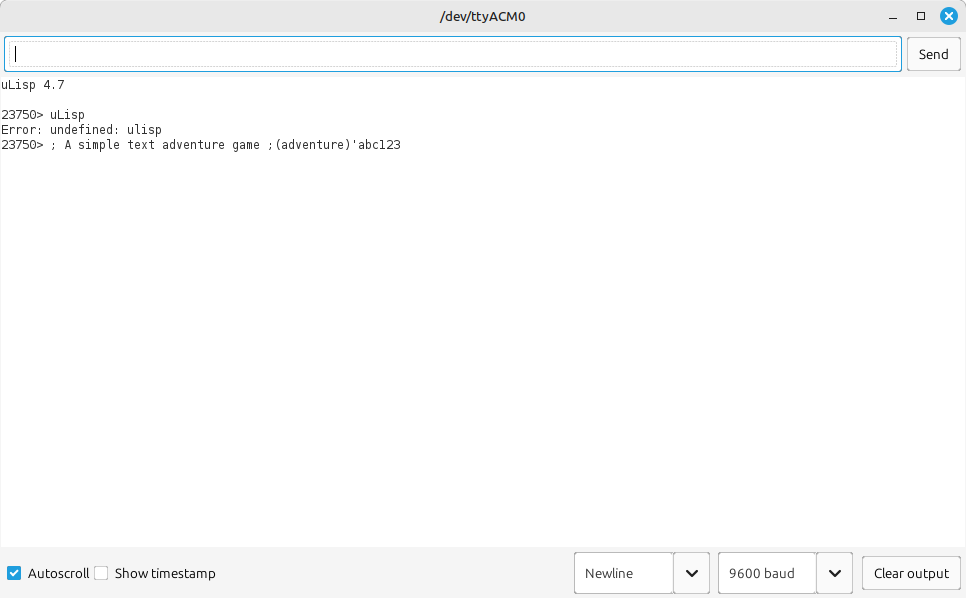This is my current workaround for sending an expression or region to an ESP32S3 from Emacs using a serial-term. I split the input into lines and send one line at a time with a delay in between to keep the ESP32’s serial buffer from overflowing. It may be inelegant, but it seems to work. I can send entire long ulisp buffers without hanging the serial port. (Tested with a LilyGo T-deck at 9600 baud. I reckon the delay could be reduced if you increase the baud rate.)
I tried doing a similar thing with an inferior lisp/comint buffer, but that required overriding comint-send-string and comint-send-region (which I tried to do with advice-add), and I ran into problems with weird double-echoing and ^M’s in the screen output, which my casual elisp knowledge has so far proven unable to solve.
;; based on ulisp forum posts by j-keck Nov. 18 in "Emacs for programming"
(defvar ulisp-term-port "/dev/ttyACM0")
(defvar ulisp-term-speed 9600)
;; send a string to the ulisp port.
;; send a line at a time, and delay after each to keep ESP32S3 serial buffer from hanging
(defun ulisp-send-string (s)
(with-current-buffer ulisp-term-port
(end-of-buffer)
(let ((lines (split-string s "\n")))
(dolist (l lines)
(insert l)
(term-send-input)
(sleep-for 0.2)))))
(defun ulisp-eval-last-expression-in-term ()
(interactive)
(let ((expr (buffer-substring-no-properties
(save-excursion (backward-sexp) (point))
(point))))
(ulisp-send-string expr)))
(defun ulisp-eval-region-in-term ()
(interactive)
(let ((expr (buffer-substring-no-properties
(region-beginning)
(region-end))))
(ulisp-send-string expr)))
(defun ulisp-connect-term ()
(interactive)
(split-window-below)
(other-window 1)
(serial-term ulisp-term-port ulisp-term-speed)
(term-line-mode)
(other-window 1))
(defun ulisp-disconnect-term ()
(interactive)
(pop-to-buffer ulisp-term-port)
(delete-window)
(kill-buffer ulisp-term-port))
(global-set-key (kbd "C-c e") 'ulisp-eval-last-expression-in-term)
(global-set-key (kbd "C-c r") 'ulisp-eval-region-in-term)
(global-set-key (kbd "C-c c") 'ulisp-connect-term)
(global-set-key (kbd "C-c d") 'ulisp-disconnect-term)

